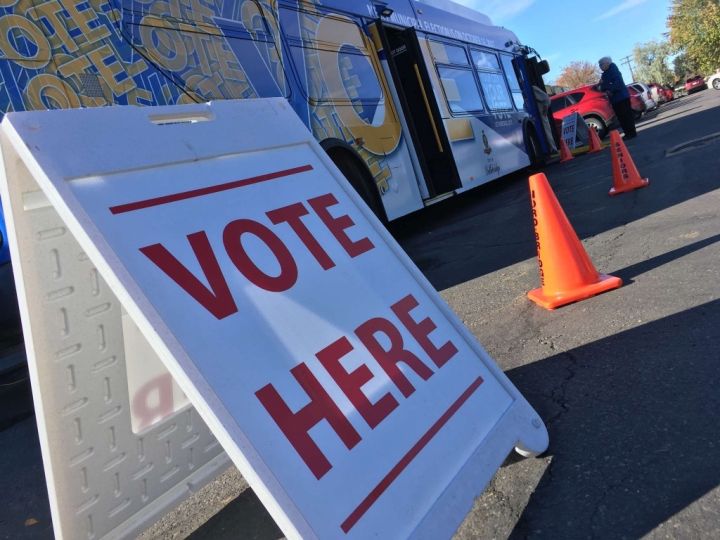It’s official, B.C.’s municipal election campaign period is underway.

While many candidates made their intention to run for office known months ago, under B.C. election law the election campaign itself is only 28 days.
That period is significant, because it includes a number of restrictive rules on advertising and spending, both by the candidates themselves and third parties.
The province passed the new Local Elections Campaign Financing Amendment Act, which set the new limits, last fall.
WATCH: Global News launches new Focus BC series, with eye on coming civic elections

Candidate cash
Under B.C.’s new municipal campaign financing rules, donations from corporations and unions are banned, and individuals are capped at giving $1,200 per year.
With the campaign period now underway, candidates are also strictly limited in how much they can spend.
In communities with a population of under 10,000 people, the limit is $10,000 for mayoral candidates, and $5,000 for all others.
In larger communities, the limit is based on a per capita formula. In Vancouver, for example, a mayoral candidate can spend up to $210,174.60, while a council or park board candidate can spend $107,793.12.
Spending by parties must be attributed to a particular candidate, whose total that money will count towards.
For comparison, in the 2014 election Vision Vancouver spent $3.3 million on its campaign that saw Gregor Robertson elected mayor and the party win a majority on council.
In that same election, the Non-Partisan Association (NPA) spent just over $2 million.
WATCH: 2018 Civic Elections: Concerns about randomized ballots in Vancouver

Third-party spending
Individuals and groups who aren’t running for office but are hoping to sway public opinion are allowed to spend money during the election campaign, but there are strict rules.
To begin with, third parties must register with Elections BC if they want to spend money. There are 28 organizations and three individuals who have done so.
All advertising must include the name and contact information for the group or person who sponsored the ad, and they can’t be created in conjunction with a candidate or party.
They are also limited in how much they can spend, but that limit varies depending on the size of the municipality involved and the office for which the candidate they’re supporting is running.
For example, the limit to support a candidate for mayor or council in Vancouver is $10,508.73, while in Kamloops that same limit is $2,876.22.
On top of that, third parties are limited to a hard cap of $150,000 in spending province-wide.
While the rules are clear for the election period, they have been criticized for a “loophole” which allows uncontrolled spending by third parties prior to the campaign period.
Billboards of this nature supporting Vancouver mayoral candidate Hector Bremner raised eyebrows when they appeared across the city earlier this month.
B.C. voters will go to the polls on Oct. 20.





Comments